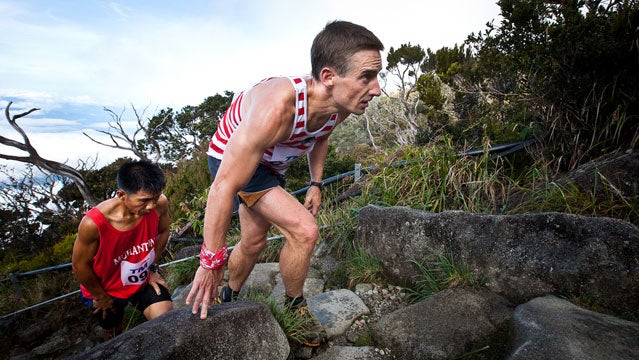Jeff,
Apart from moving to altitude, or sleeping in an altitude tent (which I only recommend if you’re working with a coach experienced with the equipment and effects on training), the single best thing you can do to prepare for your ride is to work on increasing your sustainable climbing power. The more power your can produce with your aerobic engine, before having to call on your anaerobic system for additional energy, the better you will be able to deal with the altitude.
Think of it this way: The more work you can do with each liter of oxygen you breath in, the better. That way, even when the availability of oxygen decreases at higher altitudes, you’ll feel less of a detriment. The deeper you have to dig to maintain your pace on those big climbs, the more you’ll feel the thin air. Similarly, the more fit you are, the more energy you’ll be able to conserve on the descents and flat portions of the course, leaving more energy for the higher altitude portions.
In terms of the training, hit the hills. Focus on getting your climbing to a comfortable eight to nine out of 10 on the rate of perceived exertion while at sea level, to give yourself some room for the increased demands of exerting yourself at altitude.
One final note flying in on the day of, or day before, the event is optimal. Your body is the strongest when you first arrive at altitude, from there it takes, depending on the person, up to three weeks to acclimatize to the altitude. If you’re sitting around for three days, waiting for the event to start, you’re likely to suffer more with the altitude than if you flew in the night before the event started. So fly in, climb those hills, and then enjoy your time at altitude after the race is over.
OK, one more piece of advice: stay hydrated. At higher elevations, the air is drier and you will dehydrate faster than you do at sea level. Dehydration is one of the primary reasons people suffer headaches when they come to Denver (5,280 feet), Colorado Springs (6,200 feet), or go any higher location. Drink up, because any amount of good training and preparation won’t help you if you’re dehydrated out there.
And don’t forget to look around! You’re going to be riding through some of the best scenery in the country.


